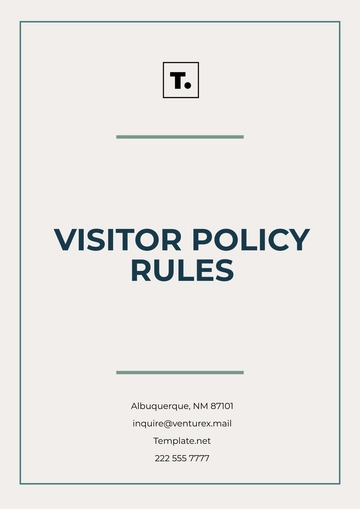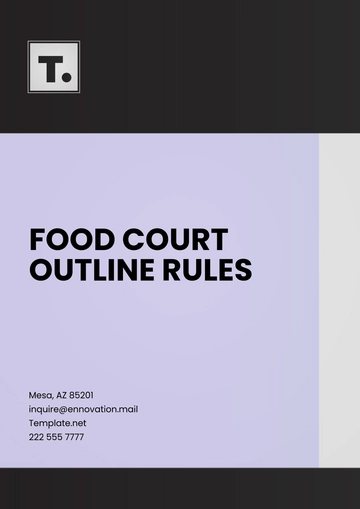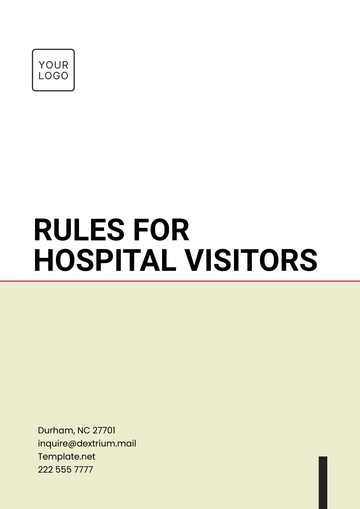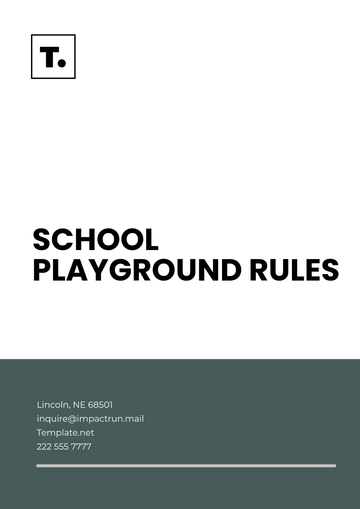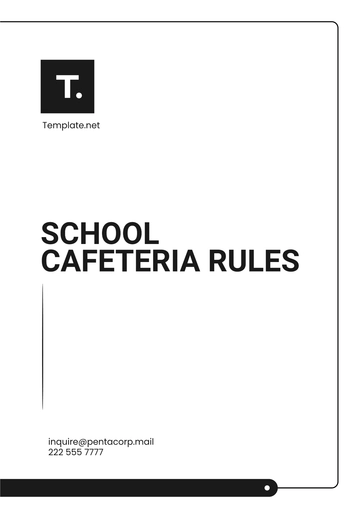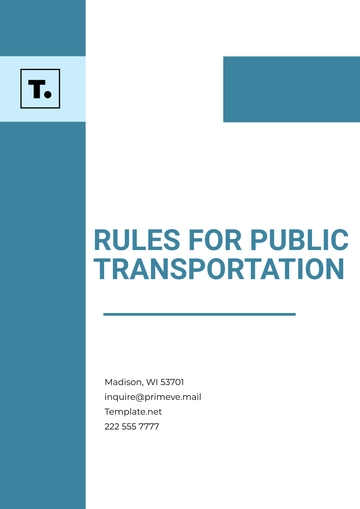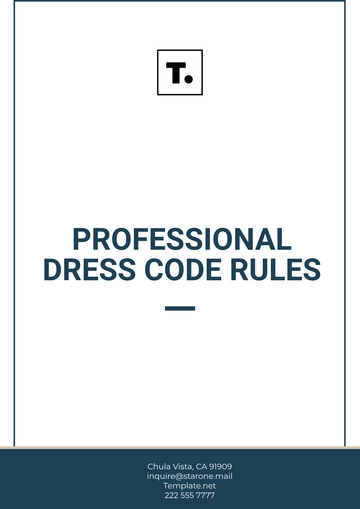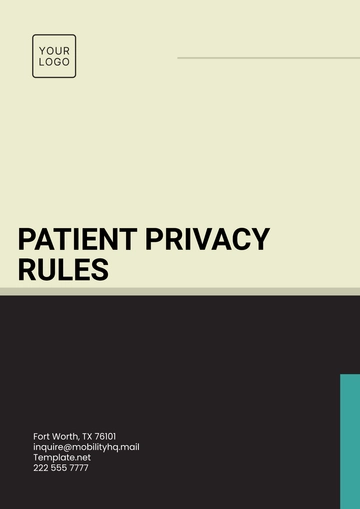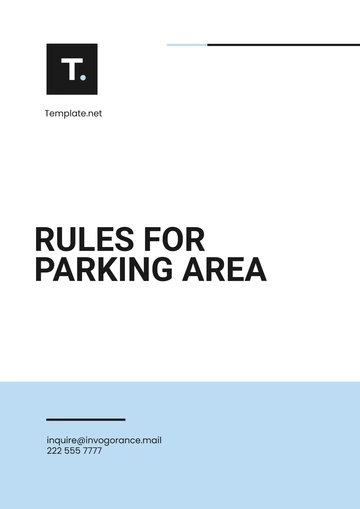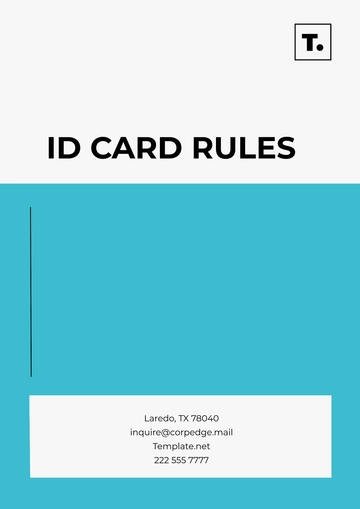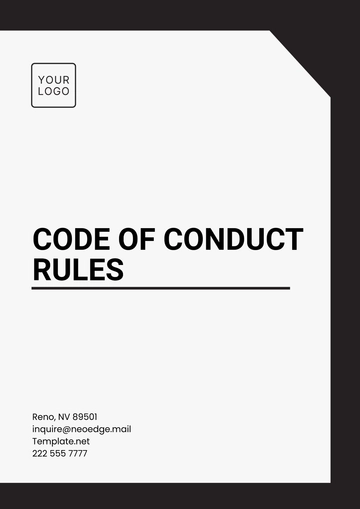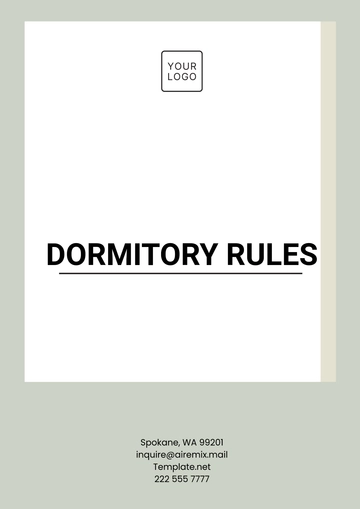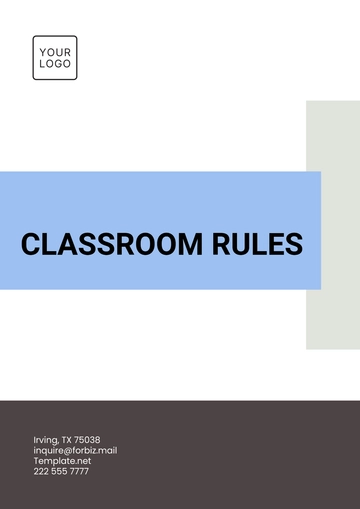Free Pet Care Rules
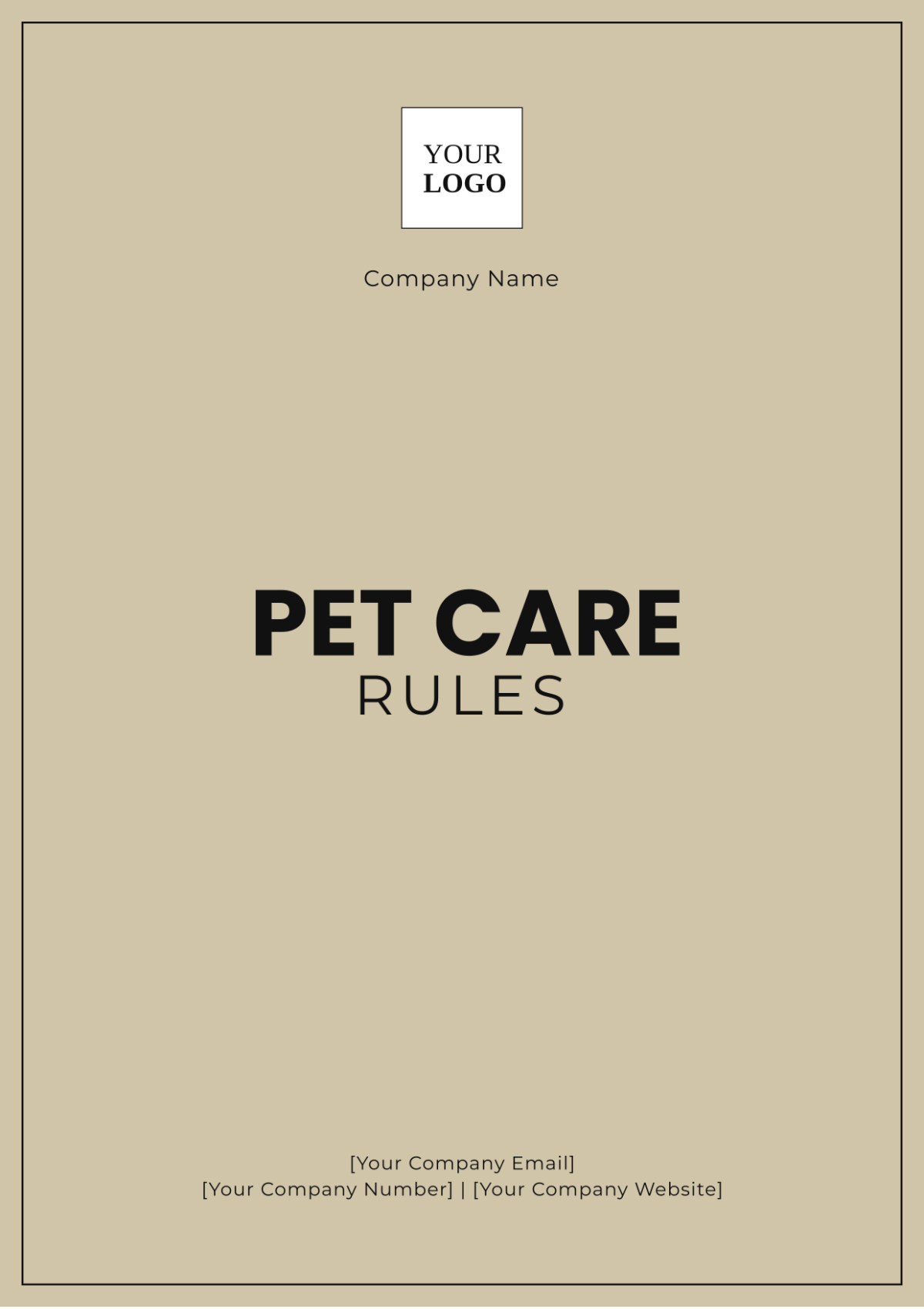
Prepared by: [Your Name]
Date: [Date]
I. Introduction
Caring for a pet involves fulfilling essential responsibilities to ensure their health, safety, and happiness. This guide provides clear rules on daily routines, nutrition, grooming, training, and special needs to help you create a nurturing environment for your pet. By following these guidelines, you’ll foster a loving and well-balanced life for your furry companion.
II. General Care
A. Daily Routine
Establishing a consistent daily routine is crucial for your pet's overall well-being. Regular schedules help maintain a stable metabolism and provide a sense of security.
Feeding: Feed your pet at the same time every day. This consistency helps regulate their digestive system and metabolism.
Hydration: Always provide fresh water. Clean and refill water bowls daily to ensure your pet stays hydrated.
Exercise: Daily exercise is essential for physical health and mental stimulation. Tailor exercise routines to your pet's breed and energy level, whether it's a walk, playtime, or other activities.
B. Regular Check-ups
Routine veterinary visits are key to preventing health issues and catching potential problems early.
Annual Vet Appointments: Schedule yearly check-ups to monitor your pet's health, administer vaccinations, and update preventive care.
Preventive Treatments: Stay up-to-date with flea, tick, and worm prevention treatments. These measures protect your pet from common parasites and related diseases.
III. Nutrition
A. Balanced Diet
A balanced diet is vital for your pet's health and longevity. Proper nutrition supports immune function, maintains a healthy weight, and enhances quality of life.
Consultation: Work with your veterinarian to determine the best diet for your pet, considering factors like age, weight, and health status.
Diet Composition: Provide a mix of high-quality commercial food and natural food sources as recommended. Ensure the diet meets your pet's specific nutritional needs.
B. Avoid Toxic Foods
Certain foods are harmful to pets and should be kept out of their diet and reach to avoid health issues.
Toxic Foods: Do not feed your pet chocolate, grapes, onions, garlic, or caffeinated products. These can cause serious health issues.
Caution with Bones: Be careful with bones, especially cooked ones, as they can splinter and cause internal injuries.
IV. Hygiene and Grooming
A. Regular Grooming
Regular grooming keeps your pet healthy and comfortable, preventing skin issues and reducing shedding.
Brushing: Brush your pet's fur regularly to prevent matting and control shedding. This also helps spread natural oils, keeping the coat healthy.
Bathing: Bathe your pet as needed, using a pet-specific shampoo. Overbathing can strip natural oils, so follow your veterinarian's recommendations.
B. Oral Hygiene
Good oral hygiene, including regular brushing, flossing, and dental check-ups, prevents dental diseases and promotes overall health.
Tooth Brushing: Brush your pet's teeth regularly with pet-safe toothpaste. This
helps prevent plaque buildup and dental issues.
Dental Products: Provide dental chews or toys designed to promote oral health and reduce tartar.
V. Environment
A. Safe Space
Design and establish a living environment that is both secure and comfortable, taking into account and catering specifically to the unique needs and preferences of your pet.
Safety: Ensure your home is free from hazards like loose wires, toxic plants, and other dangers.
Comfort: Provide a cozy bed and a designated resting area. This space should be clean and comfortable, offering a safe haven for your pet.
B. Stimulating Environment
Ensuring that your pet receives adequate mental stimulation is fundamentally important for fostering their overall happiness and well-being.
Enrichment: Offer a variety of toys that cater to different play styles. Puzzles, chew toys, and interactive toys can keep your pet engaged.
Toy Rotation: Rotate toys regularly to maintain your pet's interest and prevent boredom.
VI. Behavior and Training
A. Positive Reinforcement
Training should focus on positive reinforcement, encouraging good behavior through rewards.
Rewards: Use treats, praise, or playtime to reward desirable behavior. This approach fosters trust and a positive relationship.
Avoid Punishment: Avoid punishment, as it can cause fear, anxiety, and aggression. Focus on encouraging and rewarding good behavior instead.
B. Socialization
Proper socialization helps your pet become well-adjusted and comfortable in various situations.
Exposure: Gradually introduce your pet to different environments, people, and animals. Positive and controlled experiences help prevent fear and aggression.
Consistency: Consistent socialization from a young age is ideal, but older pets can also benefit from exposure to new experiences.
VII. Safety
A. Identification
Reuniting lost pets with their owners depends on reliable identification methods like microchipping, ID tags, and updated records. This crucial link helps shelters, vets, and the public confirm a pet's identity and return them safely.
ID Tags: Ensure your pet always wears a collar with an up-to-date ID tag containing contact information.
Microchipping: Consider microchipping your pet for additional security. It provides a permanent form of identification.
B. Supervision
It is essential to consistently and diligently monitor your pet at all times to make sure that they remain safe and healthy, and to actively oversee their activities to protect their overall well-being.
Monitoring: Never leave your pet unsupervised in unfamiliar environments or around potential hazards.
Outdoor Safety: Be vigilant during outdoor activities to prevent encounters with wildlife, hazardous materials, or unsafe situations.
VIII. Special Considerations
A. Elderly Pets
Older pets often need extra care to maintain a good quality of life. Age-related health issues require regular check-ups, medications, diet adjustments, mobility assistance, and mental stimulation. This helps keep them comfortable, healthy, and happy.
Comfort: Provide softer bedding and ensure easy access to food, water, and litter areas.
Frequent Check-ups: Schedule more frequent veterinary visits to monitor age-related health conditions and adjust care as needed.
B. Special Needs Pets
Animals with unique health requirements or disabilities might necessitate particular adjustments and considerations to guarantee their overall health and happiness.
Veterinary Guidance: Consult your veterinarian for tailored care guidelines based on your pet's condition.
Home Adaptations: Modify your home environment to meet the unique needs of your pet, such as ramps for mobility issues or specific diet adjustments.
These comprehensive Pet Care Rules are designed to ensure the health, safety, and happiness of your pets. Following these guidelines will help create a loving and nurturing environment for your furry friends.
- 100% Customizable, free editor
- Access 1 Million+ Templates, photo’s & graphics
- Download or share as a template
- Click and replace photos, graphics, text, backgrounds
- Resize, crop, AI write & more
- Access advanced editor
Keep your pets happy and healthy with the Pet Care Rules Template from Template.net. This customizable and editable template outlines essential guidelines for pet care. Editable in our Ai Editor Tool, you can easily personalize it to suit your pets' specific needs. Ideal for consistent care, it helps maintain a well-organized and loving home.


